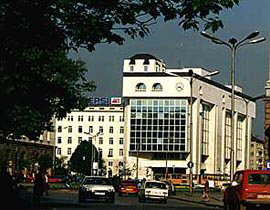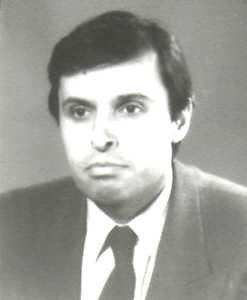 Building the foundations Building the foundations
Bulgaria's economic transition, which started in 1989, was slow and controversial till 1997. The currency and, to some extent, the prices liberalization were the only measures introduced at the beginning of the transition. Delay and inconsistency of the measures taken in all other spheres caused a significant shrunk of GDP (above 35% for the 1989-1997 period), high fiscal deficits (entering double-digit area compared to GDP in several years), high interest rates (25% monthly interest rate being the record), debt-servicing expenditures reaching 50% of all budget expenditures. At the beginning of 1997, Bulgaria experienced a sharp currency devaluation and a period of hyperinflation (up to 243% for the month of February 1997).
After Peter Stoyanov won the presidential elections and his UDF party won parliamentary election and formed a government, a currency board was introduced on July 1st 1997. According to this board the Bulgarian national currency - the Lev - was fixed to the German Mark (1000 Lev = 1DM) and the money supply was tied to the level of foreign currency reserves. Under this new regime the Central Bank can no longer finance the budget or support banks (banks bail-outs are possible if a systematic risk appear). The currency board is considered to be a panacea for financial stabilization and a precondition for economic growth. Dr. Steve Hanke, professor of Applied Economics at Johns Hopkins University in Baltimore and Jeffrey Sachs, a professor of International Trade at Harvard University and Director of Harvard Institute for International Development, were involved as consultants of the Bulgarian authorities. The government launched an ambitious program named "Bulgaria 2001", which outlined the reforms the government was to introduce in the next four years.
The authorities started a relentless fight against crime and corruption. "Compared to last year we have around 40% decrease of crime incidents. We have managed to deal with several of the illegal businesses in Bulgaria, including forceful insurance activities and also the production and distribution of non-licensed CDs. And we have also managed to deal with the organized crime groups in our relationships and economic trade with Russia", Prime Minister Ivan Kostov explains.

The currency board and the fast implementation of
the government program for economic reforms led
to regained public confidence in the financial sector
and an immediate sharp drop of inflation and interest
rates. Fiscal deficit shrunk dramatically (less
than 3% in 1997, and a surplus is expected for 1998),
foreign reserves more than tripled and the economy
showed signs of recovery at the end of 1997. Once
commercial banks got stabilized, they got their
clients back and the time of possible bank-runs
faded away. |
The Banker, the global banking monthly published by Financial Times Magazine ranked Bulgarian Bulbank n° 1 among banks all over the world in terms of profit/assets ratio. "Bulbank is closing its books for 1997 with truly impressive results. We may likewise be closing an entire chapter in the history of the bank. The turnaround of Bulbank undertaken by management in the early 90s has been successfully completed. We have built an extensive and profitable franchise, streamlined the operational management and focused on a few core activities to sustain the bottom-line", says Chavdar Kantchev, Chairman and CEO.

The Governor of the Bulgarian National Bank Svetoslav Gavriiski marks the future plans: "Our privatization program anticipates all state owned banks to be privatized by the end of
1999. By the end of 1998 Bulgaria will abolish all restrictions to the free movement of capitals, and will adopt full convertibility of the Lev. The achieved financial stability and the continuing process of stabilization in the next years, the program for economic restructuring and privatization in the real sector and the banking system, provide good grounds for the expected increase of foreign investments in the country".
A modern tax system was introduced on January 1st 1998 which includes improved efficiency of the value-added tax, customs duty and small business tax collection, a reduction in the corporate tax rate and the closing of loopholes in tax legislation.
A modern insurance law was introduced and new laws for foreign investments, competition protection and customs were passed.
|

